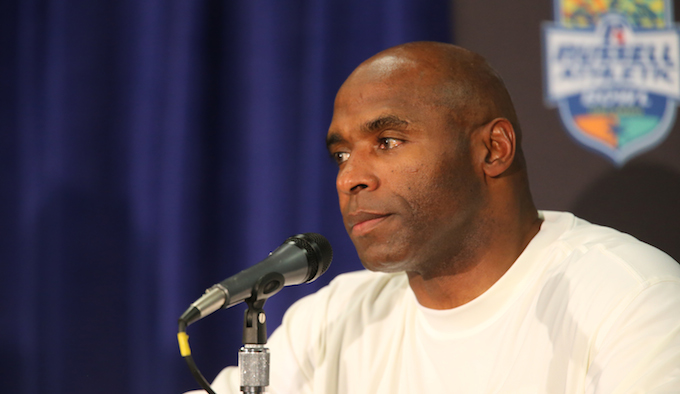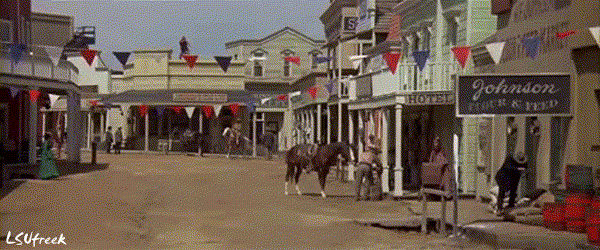
As you may have heard, the University of Texas hired former Louisville coach Charlie Strong to be the 29th head coach for its football program over the weekend. There are a few characteristics that distinguish Strong from the 28 men who preceded him in the role of head coach of the Texas Longhorns (he’s the only one to have led a team to triumph in the Beef ‘O’ Brady’s Bowl!), but let’s address the one that would be the unspoken elephant in the room, if only various members of the sports media had the sense to leave it unspoken: Charlie Strong is an African-American man, coming down to Texas to coach.
The Blazing Saddles jokes came quick both in Texas and around the country—the best one to be found in the gif below:

The joke here, of course, isn’t that Strong is black; it’s that the sports media—and some fans—don’t seem to know what to make of Strong as he comes to Texas. And, because this is America and we have no idea how to talk about race ever, even legitimate concerns about Strong get expressed in clumsy, racist terms.
In a listicle by the Dallas Morning News titled “10 things you might not know about UT coach pick Charlie Strong,” number four is a years-old quote from legendary Notre Dame football coach Lou Holtz (these days he draws a paycheck from ESPN as an analyst), who explained in 2010 that Strong is “not a hip-hop coach,” despite being great with players. “He really, truly could have coached for Woody Hayes with no problem whatsoever.” It’s unclear what a “hip-hop coach” is and what distinguishes Strong from being one. Hayes, who was legendary for demanding “toughness” from his players, clearly doesn’t qualify. (Hayes was also famous for punching journalists, swearing at referees, and starting fistfights with the players on opposing teams.)
While it’s not certain what a “hip-hop coach” is, it’s also a safe bet that Holtz wouldn’t have felt the need to reassure the audience that they wouldn’t be dealing with one had the Longhorns turned the reins over to, say, Art Briles. Whatever the characteristics that make one a “hip-hop coach,” though, the Dallas Morning News was keen to convey Holtz’s words to its readers via Twitter, as well. (The tweet was since deleted, but it was captured by Deadspin here.)
Rather than stew in outrage, though, most of the response to Holtz and the Morning News was pointed mockery, as folks on Twitter tried to figure out who is a hip-hop coach. This led hip-hop and sports enthusiasts to create the #hiphopcoaches hashtag, another example of Twitter making wordplay lemonade out of racist lemons.







